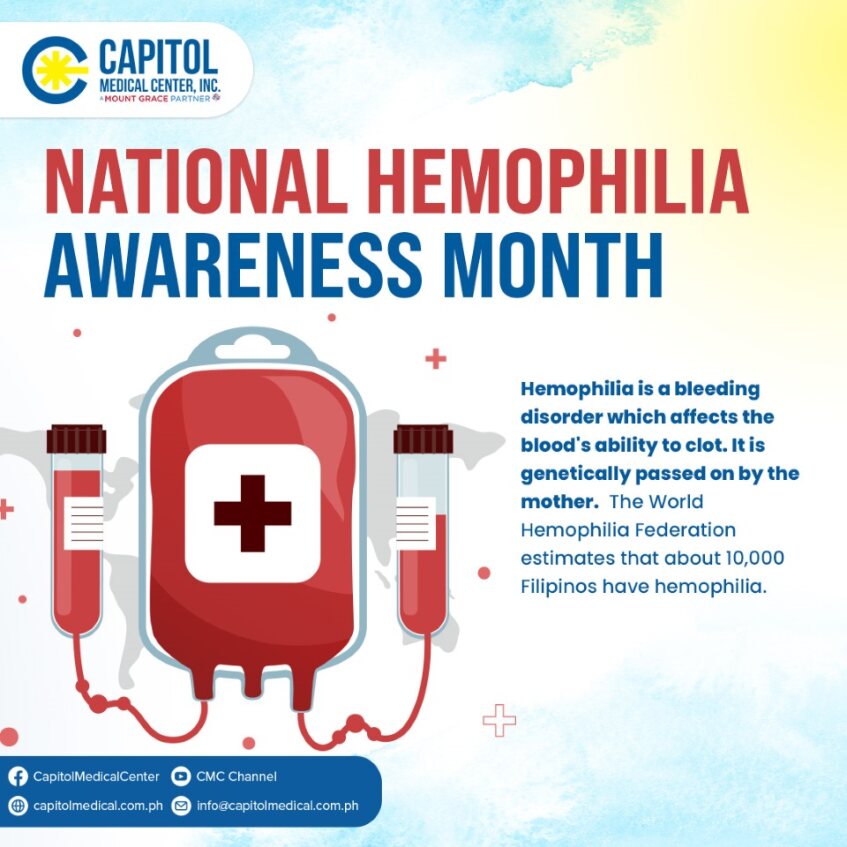
Rare but Real: The Struggles of Hemophilia Warriors
Hemophilia is a rare genetic disorder in which the blood does not clot properly due to a deficiency in specific clotting factors. As a result, even minor injuries can lead to prolonged or spontaneous bleeding, both externally and internally. This condition is usually inherited from the mother and primarily affects males, although females can be carriers and, in rare cases, also exhibit symptoms. In the Philippines, it is estimated that around 10,000 Filipinos are living with hemophilia, while approximately one million may have other bleeding disorders such as Von Willebrand disease. Despite these numbers, fewer than 1,700 cases have been officially recorded, highlighting a serious gap in diagnosis and awareness.
According to the Philippine Council for Health Research and Development (PCHRD), there are two main types of hemophilia:
Hemophilia A – the more common type, caused by a deficiency in clotting factor VIII. It occurs in 1 of every 5,000 male births.
Hemophilia B, also known as Christmas disease, is due to a deficiency in clotting factor IX, affecting about 1 in 25,000 male births
There is currently no known cure for hemophilia. The primary treatment is replacement therapy, where the missing clotting factors (either factor VIII or IX) are administered intravenously. Unfortunately, 3 out of 4 people with hemophilia in the Philippines cannot access this treatment due to its high cost and limited availability. As a result, many individuals live with the burden of the disease without the care and support they need.
This is why National Hemophilia Awareness Month is so important. Many people remain unaware of the risks, and far too many lack access to proper diagnosis and treatment. By promoting awareness, we hope to encourage early detection, provide education, and extend support to those who live with this condition. Hemophilia is more than a medical diagnosis – it is a lifelong challenge. But through collective action, education, and compassion, we can ease the journey for our hemophilia warriors. Blood donation is one way we can actively support these hemophilia patients. Blood is essential for many medical procedures and for managing serious conditions, including hemophilia.
In a study conducted by the Philippine Academy of Family Physicians, private tertiary hospitals report that its in-house blood bank facility, which caters solely to its internal needs, requires an average of 60 units of blood products daily. However, only 50% of this demand is met. To address the shortfall, the hospitals encourage blood donations from relatives, and sources additional supply from other institutions that provide blood products.
At Capitol Medical Center, a DOH-accredited Level 3 hospital, we also face challenges in maintaining an adequate blood supply in our blood bank. Fortunately, our employees and medical staff are always willing to step forward and donate blood voluntarily, extending life-saving support to patients, especially those within our care.
Our Blood Bank at Capitol Medical Center advocates for giving the gift of life. We are committed to safely storing and distributing your generous donations to those in need.
To learn more about blood donation, please contact us through the CMC Concierge:

